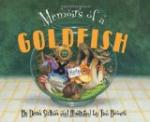Then Hastings led me across the hall to a room about twelve feet square, the walls of which were lined with books, where a wood fire was already crackling cozily. Motioning me to an old leather armchair, he pulled up a wooden rocker before the mantel and, leaning over, laid a regiment of chestnuts before the blazing logs.
I stretched out my legs and took a long pull on one of my Carona-Caronas. It all seemed too good to be true. Only six hours before in my marble entrance hall I had listened disgustedly to the cackle of my wife’s luncheon party behind the tapestry of my own dining room.
After all, how easy it was to be happy! Here was Hastings, jolly as a clam and living like a prince on—what? I wondered.
“Hastings,” I said, “do you mind telling me how much it costs you to live like this?”
“Not at all,” he replied—“though I never figured it out exactly. Let’s see. Five per cent on the cost of the place—say, two hundred dollars. Repairs and insurance a hundred. That’s three hundred, isn’t it? We pay the hired man thirty-five dollars and Carmen eighteen dollars a month, and give ’em their board—about six hundred and fifty more. So far nine hundred and fifty. Our vegetables and milk cost us practically nothing—meat and groceries about seventy-five a month—nine hundred a year.
“We have one horse; but in good weather I use my bicycle to go to the station. We cut our own ice in the pond back of the orchard. The schools are free. I cut quite a lot of wood myself, but my coal comes high—must cost me at least a hundred and fifty a year. I don’t have many doctors’ bills, living out here; but the dentist hits us for about twenty-five dollars every six months—that’s fifty more. My wife spends about three hundred and the children as much more. Of course that’s fairly liberal. One doesn’t need ballgowns in our village.
“My own expenses are, railroad fare, lunches, tobacco—I smoke a pipe mostly—and clothes—probably about five hundred in all. We go on a big bat once a month and dine at a table-d’hote restaurant, and take in the opera or the play. That costs some—about ten dollars a clip—say, eighty for the season; and, of course, I blow the kids to a camping trip every summer, which sets me back a good hundred and fifty. How does that come out?”
I had jotted the items down, as he went along, on the back of an envelope.
“Thirty-three hundred and eighty dollars,” I said, adding them up.
“It seems a good deal,” he commented, turning and gazing into the fire; “but I have usually managed to lay up about fifteen hundred every year—besides, of course, the little I give away.”
I sat stunned. Thirty-three hundred dollars!—I spent seventy-two thousand!—and the man lived as well as I did! What did I have that he had not? But Hastings was saying something, still with his back toward me.




